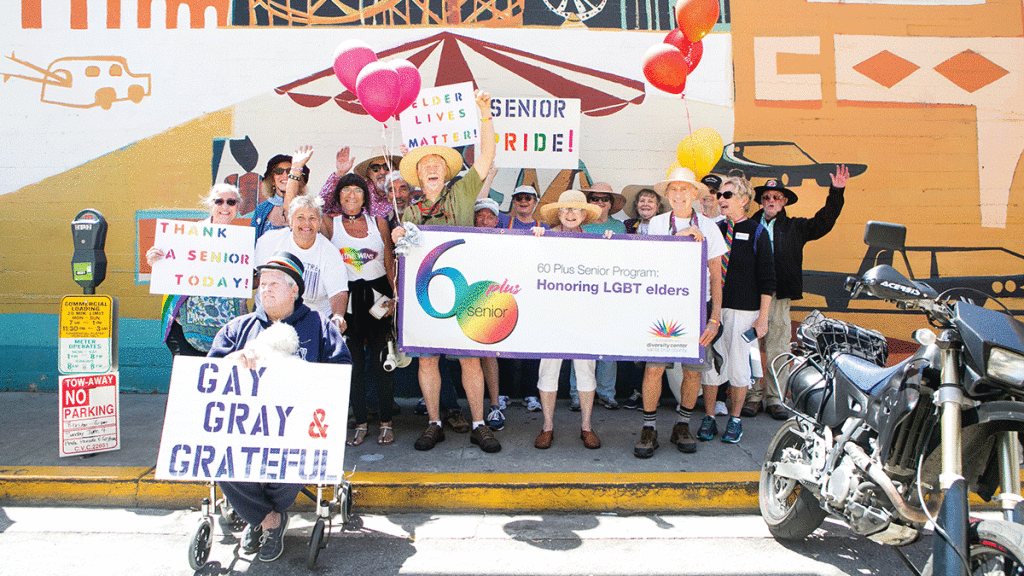The first wave of the Baby Boomer generation has already reached retirement age, and there are millions more right behind them. Nearly 30% of the U.S. population is made up of Boomers that are reaching or have reached senior age. With this in mind, the Santa Cruz Diversity Center expects to see a growing number of seniors seeking services or support, and in particular more LGBT+ seniors.
“Call it the silver tsunami or the gay and grey movement,” says Steven Matzie, the Diversity Center’s 60Plus senior program coordinator. “We are finding the need for more in-depth social connections in particular. There are many LGBT seniors needing elder support groups.”
60Plus is the longest-running program at the center, and it’s aimed at addressing a need for ongoing social support for older LGBT+ adults as they age.
“This population is more at risk for social isolation for many reasons, one of which is that it was very difficult—and often impossible—to come out as being gay in the time when they were raised,” Matzie says. “The folks that are members are very much a pre-Stonewall group. Prior to that pivotal moment, folks could be incarcerated, institutionalized, suffering shock treatment and other forms of invasive therapies. They could lose their jobs and be outed in the newspaper—things we aren’t currently at risk of in society.”
Matzie says because of that historical background, many LGBT+ individuals seek to closet and hide themselves, particularly from friends and family. Likewise, many LGBT+ individuals lost friends and peers in the AIDS crisis. “As they get older, no support networks are in place, which can lead to social isolation,” Matzie says. “Our founders had the foresight to think about support in the future as we age.”
The group first met in April 2013 at the Capitola Community Center. A crowd of 76 people showed up, ages 60 to 94 years old. “Think of a 94 year-old in 2003, where they were when they were a young adult,” Matzie says. “Consider the culture of our country at that time—it was very homophobic.”
The senior mailing list started at just 15 people, and has since grown to around 360. The group serves anywhere from 65 to 140 seniors at a given luncheon, and celebrated its 15th anniversary last year. Congressmember Jimmy Panetta presented them with a certificate of recognition.
The 60Plus Program sustains itself on very limited funding—primarily private donations and member donations at events—though they get some small grants from local governments. The number of seniors 65 and older in Santa Cruz Country is around 66,000, Matzie says. Using the 5-10% “rule,” he estimates that between 5,000-6,000 local seniors identify as LGBT+. The Diversity Center reaches around 400 of them.
The organization also offers support groups for youth and LGBT+ adults, but none specifically for seniors. Matzie hopes to see that change in the future. “It’s important to be around people who share similar experiences,” he says. “Not in a mainstream group, because otherwise we don’t understand each other, and where is the support in that?”
60Plus Program luncheons are bimonthly, and will resume in September and November 2019. There are also senior men’s and women’s social events in August, October and December. For more information, visit diversitycenter.org/senior or call 425-5422.

